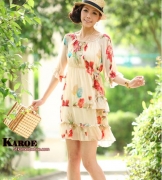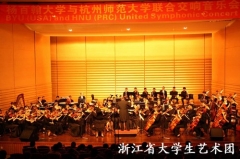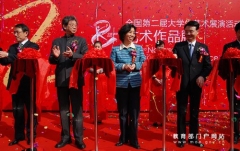我們平時所熟知的一些詞語其實源自某種商標。來看看下面的十大“商標詞匯”,你知道它們的確切含義嗎? 1: Heroin 海洛因 In 1898, the German pharmaceutical company Bayer began marketing heroin – whose name comes from the German word heroisch, meaning "powerful." The product was marketed as a cough remedy made from a supposedly non-addictive morphine derivative. It was also used as a cure for morphine addiction – which unfortunately caused large numbers of users to become heroin addicts. In part because of the growing population of "junkies" (a term that may derive from the fact that some supported their addictions by selling scrap metal), Bayer eventually ceased production and lost its trademark. In 1914, American officials began regulating opiates, including the generic, powdered version of heroin. 2: Granola 格蘭諾拉麥片 Granola was not, in fact, invented by hippies in the 1960s – but they did popularize the name. The story of this cereal begins a century earlier, with health food advocates of the 1860s. At his health sanitarium in upstate New York, Dr. James C. Jackson created "granula" for his patients. Jackson formed his "granula" by breaking up sheets of twice-baked whole grain flour (then called graham flour after its developer, Sylvester Graham). A decade later, Dr. Jackson sued Dr. John Harvey Kellogg of the Battle Creek Sanitarium for calling his own similar invention "granula." Kellogg renamed his version granola, but never really marketed it. Back-to-basics food lovers revived Kellogg's coinage in the 1960s; the generic usage of the word granola appeared in print in 1970. 3: Jungle Gym 格子爬梯 In 1920, Chicago lawyer Sebastian Hinton trademarked the Junglegym (one word). He modeled his structure after one devised by his mathematician father, who had envisioned children learning about three-dimensional space by climbing to specific x, y, and z coordinates. Over the decades, the beloved structure has been updated, and the trademark status lost. However, newer designs still honor what the inventor called the "monkey instinct" of kids. The (two word) term jungle gym first appeared in 1923; the never-trademarked, closely-related term monkey bars traces to 1955. 4: Pablum 精神食糧 The term pablum means "something insipid, simplistic, or bland" – which is unfortunate, because its namesake was a brilliant invention. In 1930, a trio of Canadian pediatricians created a cereal called Pablum (a name based on the Latin word pabulum, meaning "food" or "fodder") to help prevent rickets in infants. Packed with vitamins and minerals, their cereal was precooked to be easily digestible by young bodies. The product was a lifesaver and a hit. Because of the cereal's lack of flavor, however, the word pablum developed its metaphoric meaning – a sense that dates at least as far back as 1948. 5: Pogo Stick 彈簧單高蹺 In 1919, after a shipment of wooden jumping sticks rotted en route from Germany to the US, George Hansburg patented and trademarked a metal version: the Pogo. He introduced it to the chorus girls of the Ziegfeld Follies, who used the stick on stage. The ensuing Pogo fad of the 1920s even included a couple getting married on them. But by 1921, pogo stick was being used generically, and pogo is no longer protected by trademark. |
| [發布者:yezi] | ||
相關閱讀:
·實用英語:傳統節日介紹 元宵節的由來
·趣味英語:十大源于商標的詞匯
·情景對話:辦公室午餐時間
·趣味英語:一個陌生女孩的來信
·每日英語:只跟好萊塢明星擺pose
|
 當前位置:
當前位置:


















